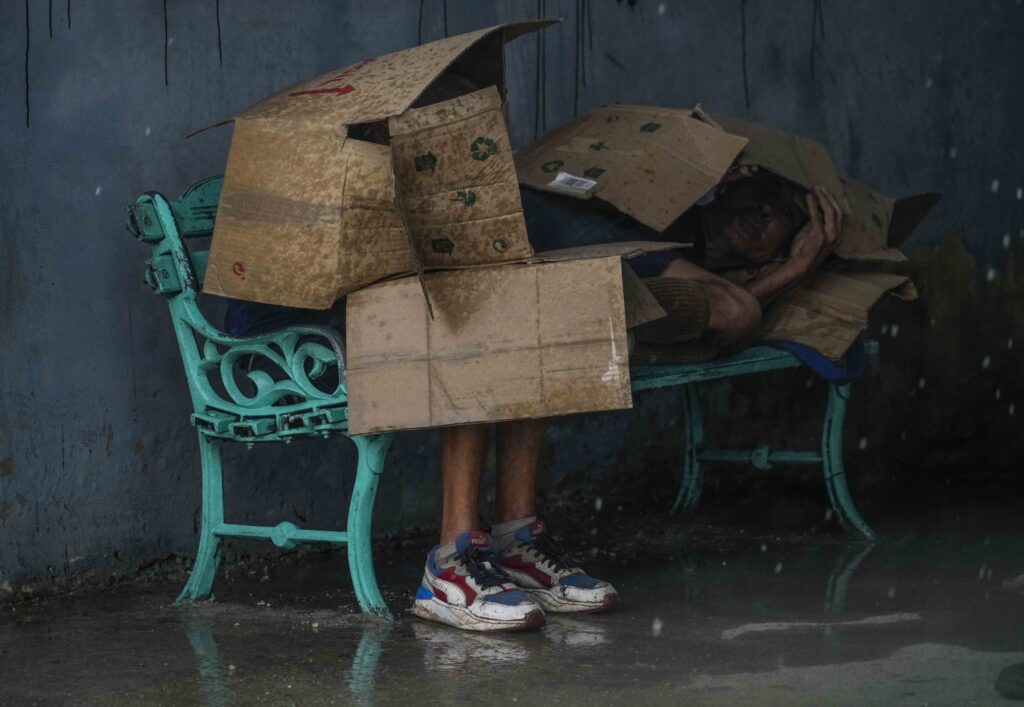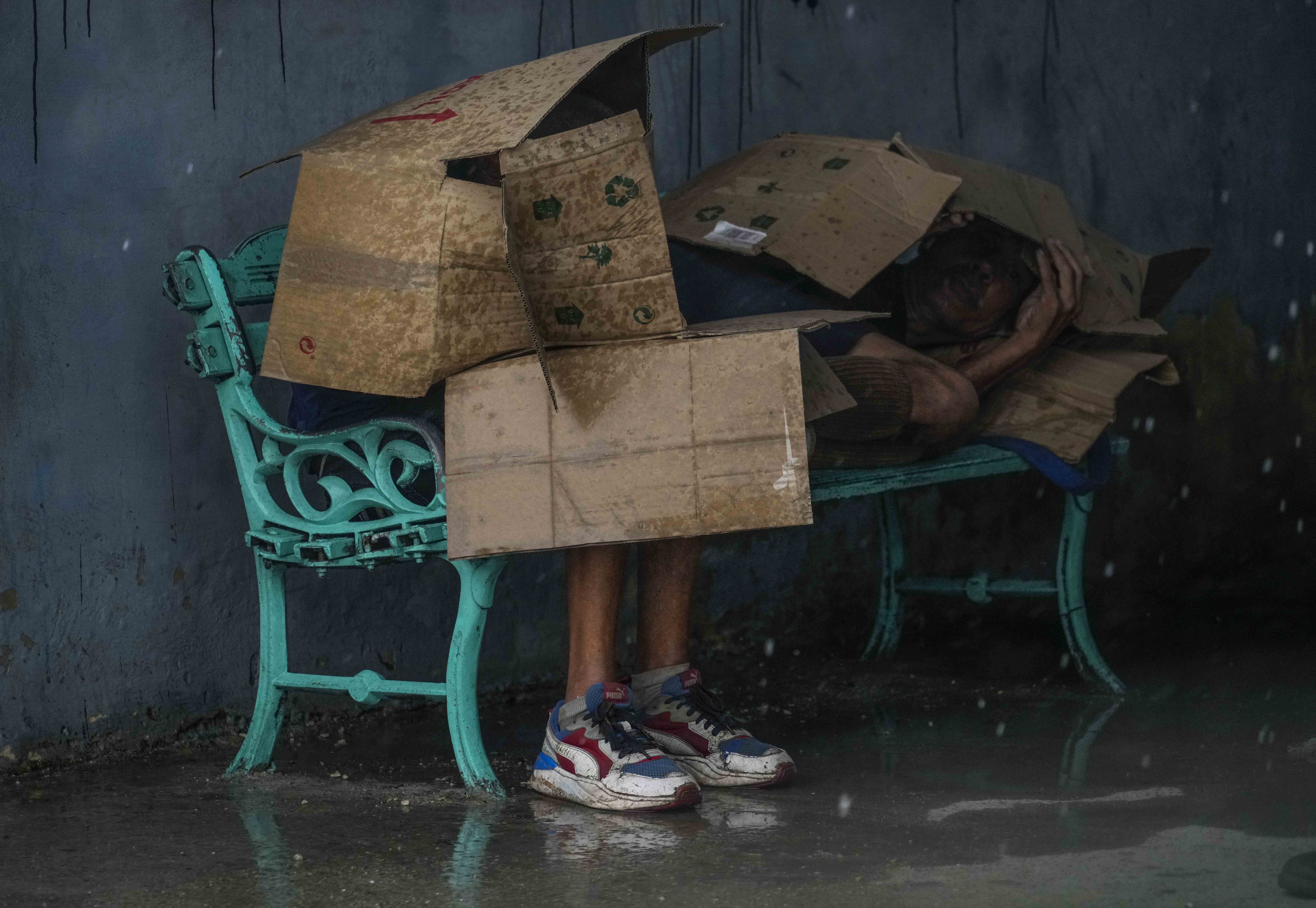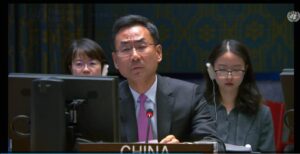
While the hurricane Raphael was moving away from Cuba This Thursday morning, entering the Gulf of Mexico, the island sought to recover from its passage through the west; The event caused a blackout national that remains in much of the country.
The capitalone of the areas most affected by the winds and downpours Raphaeldawned with a cloudy sky but little rain, after an early morning of strong gusts that shook everything. Meanwhile, a scene of trees was seen fallenelectric poles on the ground and some collapses, The Associated Press found.
“The whole thing fell wall front of the building, the one that faces the street,” said José Ignacio Dimas, a resident of Centro Habana, in a distressed tone to the AP, who arrived home on Thursday morning after working all night on a guard duty in the University, to find the surprise.
“It was very bad construction it leaked waterI was afraid that this disaster It would happen one day,” he lamented.
Dimas—who lives alone—said that in the neighborhood they told him that his neighborsthree adults and two children, were evacuatedbut he doesn’t know where, and the phones didn’t work.
Concerns in Havana
The worry of the authorities and the citizens around Havana obey the deteriorated housing stock in places like Old Havana and Central Havana.
The day before, the government reported that some 50,000 people had been protected in Havana, some 13,000 in Villa Clara and another thousands in Sancti Spíritus, Mayabeque, Artemisa, the Isle of Youth and Pinar del Río. All, population of low areas with danger of floodor because their houses were in poor condition.
So far there have been no reports injured neither deceased.
The road from Havana to Batabanó, south of Cubawas practically impassable on Thursday, with dozens of poles and the laying electric through the floor, the AP found.
Raphael hit the ground like a hurricane category 3 around 4:20 pm on Wednesday, local time, near Playa Majana, and the storm’s vortex left the island two hours later through Bahía Cabañas, both locations in the province of Artemisa.
Shortly before even touching land, before the approach of Raphael with its strong windsthe Electrical Union (UNE) reported a disconnection of the system national energy that left without service electric to the entire island from the west—where it passed cyclone—to the east.

On Thursday morning, engineer Lázaro Guerra, director of Electrical Energy of the Ministry of Energy and Mines, indicated that the service had been re-established partially in the east of the country.
Likewise, he reported that generation units had begun to be started, although he warned that in the west it would take longer due to the need to verify and certify the lines before putting the fluid to avoid harm older.
Cables fallen
A message from the UNE called on the population not to touch cables fallen and contribute to the maintenance crews by reporting any damage they saw.
The passage of cyclone Raphael joins others issues suffering Cuba since economic to the social. Precisely two weeks ago it was hit by another cyclone, Oscarthis time in the east of the country and which left eight dead and extensive material damage to roads, infrastructure and crops.
At that moment another collapse occurred due to disconnection of the system national energy – a blackout total—this time due to a lack of fuel and the breakdown of a thermoelectric plant. The authorities they recognized the fragility of the grid.



